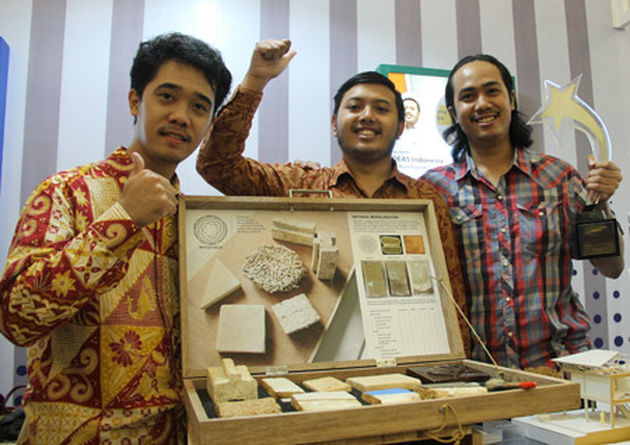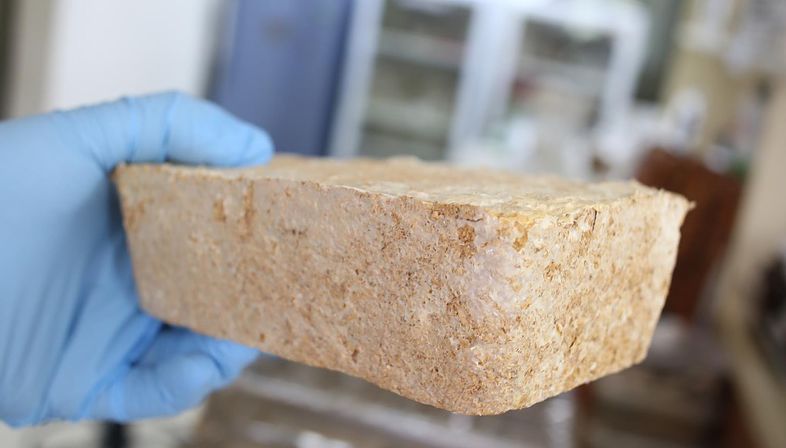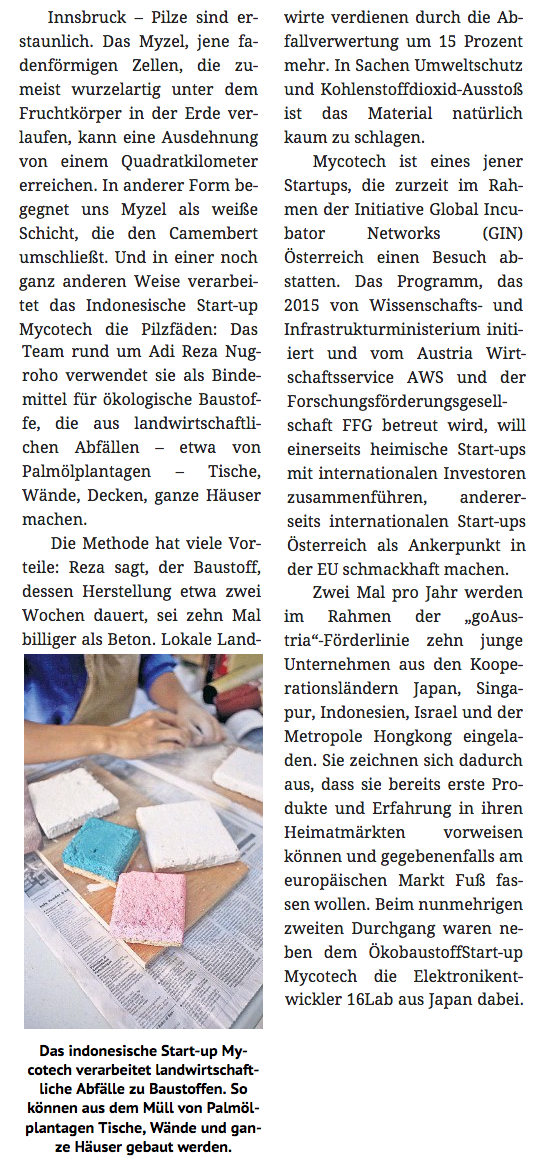Indonesian startup Mycotech from Bandung
visit: MYCOTECH<
By researching and producing composite building materials from vegetable waste using low technology that bind with mushroom mycielia, we address a range of economic, environmental and socio-cultural issues, bring together material and bio-engineers and architects, and propagate an integrated system of crop cultivation and crop waste management. We promote a multi-disciplinary approach to problem solving that ensures a transfer of knowledge across various disciplines in an investigative framework.

Ethical standards and social equity – People
Bio-composite boards produced from discarded agricultural waste will be deployed in the production of prototypical low cost units. The design and construction of these units will be by local builders and informed by local building practices. The local population benefit from the now affordable building materials, the local farmers gain an extra income from their residual waste materials, which would otherwise have been burnt and thereby degrading the environment.

Environmental quality and resource efficiency – Planet
Recycling and appreciation of agricultural waste: Burning waste crops is one of the main causes of environmental pollution. We help alleviate this by raising economic interest in the recycling of these “waste” materials to generate extra income for the farmers. Furthermore, the boards produced are bonded with natural mushroom based adhesive. This is environment friendly, and the technology can be easily transferred to the local industry.
Economic performance and compatibility – Prosperity
By demonstrating the added economic benefits of utilizing “waste materials” we promote economic modernization and diversification and help reduce poverty by offering an added income-earning opportunity to local farmers. This alternative method of recycling allows the sequestration of CO2 emissions. More importantly, the utilization of these local materials should reduce the need to import more expensive building materials.
Contextual and aesthetic impact – Proficiency
Our research goal of establishing production workshops within our partner institutions in Indonesia, who would then be in a position to educate and encourage local production of affordable building materials, will not only help reduce the present dependence on imported, non-sustainable building materials, it will also help develop the building material to be more responsive to the prevailing local needs and context.

| Attachment | Size |
|---|---|
| indo_startup.png | 432.44 KB |
| Mycos.jpg | 96.84 KB |
| Mycos_brik.jpg | 41.23 KB |
- Editor1's blog
- Login to post comments